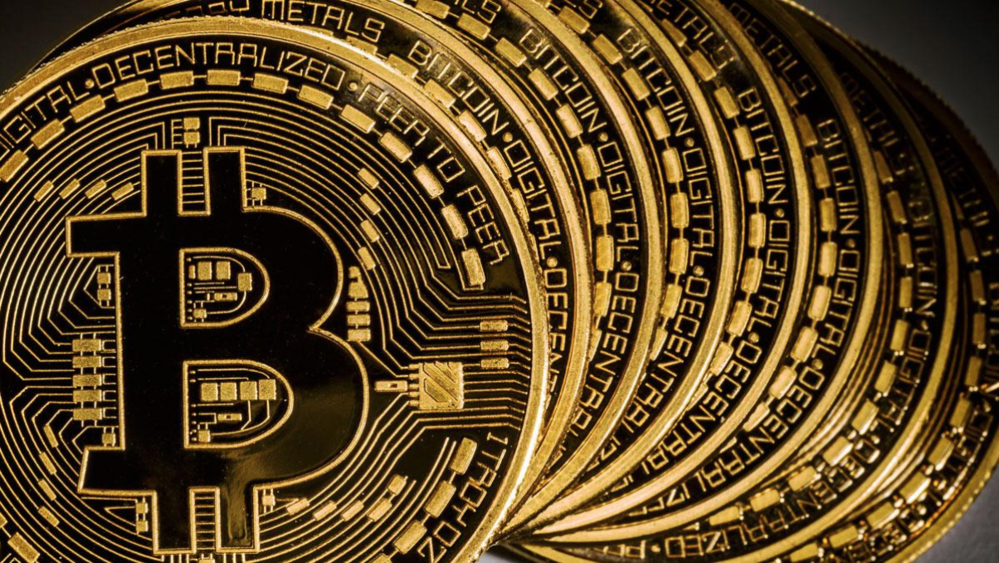Bitcoin is fast becoming the preferred currency of choice for many. 2016 was a stellar year for the cryptocurrency, scooping the FT’s award for the best performing currency of the year as well as growing around 120% in value throughout the past 12 months.
The surge in Bitcoin’s value, as well as the continuing growth in other cashless and mobile payment technologies is really begging the question, will there be a need for physical Euros, Pounds and Dollars in five years as we move on from the cumbersome metals, paper and plastic associated with them?
Indeed, the statistics show that many western societies are transitioning more and more to the cashless society model, with contactless payments now accounting for over £2.9 billion per month on average in the UK alone. Between the years 2013 and 2015, the use of contactless payments more than tripled and is on ever upward trajectory.
Looking into the reasons why so many people are abandoning cash in favour of contactless payments (including digital currencies), the answer can be found in the fact that quite simply, Money is evolving with smart-technology to become more streamlined and convenient for end users.
As we control more and more of our lives through our smartphones, using the IoT and NFC, we are becoming quite accustomed to available at the point of use technology and the instant gratification that it brings.
This ever-growing craving for instant gratification has spilled over to the world of retail and banking. If we see an item we want to purchase, we want to be able to buy it there and then. If we want to make a money transaction, we want it be processed as quickly as possible with the least amount of effort possible.
The archaic model of carrying cash requires wallets which are typically bulky, annoying things that you fret about losing and therefore feel obliged to pay due diligence to at all times.
With cash, you also have to top up your supply when you run out, meaning irritating dashes to ATM’s, a job you will never have to do with contactless or mobile based payments.
While you could argue the case for Chip and PIN, that too is a relatively slow process, whereby you have the responsibility for remembering a 4-digit passcode and spend what feels like an eternity inputting those 4 digits in the machine, waiting for approval on the other end.
With contactless payments via card and especially on smartphones, life is so much easier.
Wide reaching Benefits to Users, Growth in Retail
Recognising the growth in the market and how they can increase the likelihood of spur of the moment purchases, traditional bricks and mortar retailers (so badly hurt from the online revolution) are putting in process the means for users to pay for goods and services using our inter-networked devices and the various contactless currencies we wish to use.
There is also an existing and growing repertoire of sites that allow users to find businesses in the UK that accept bitcoin payment and should these digital currency accepting companies do particularly well, it will only be a matter of time before the major chains follow suit.
In which case, users will have a genuine choice about whether they want to pay in their national currency or a digital alternative. What happens after that could well be the beginning of the end for psychical national currency as we know it.
After all, the benefit of blockchain for both consumers and retailers is distinct. For retailers, accepting digital currency improves their profit margins, by removing the processing fees conventional forms of currency typically have.
Another notable advantage for retailers is the cutting-edge appeal that will attract those who pride themselves on being early adopters and at the forefront of technological development.
For consumers, there is the benefit of a relatively stable decentralized non-political currency that isn’t as effected by international events. There will be no need for currency conversion when going abroad either, as Bitcoin is, well, Bitcoin.
Continuing, while many raise fears of the potential for government snooping and a distinct lack of privacy in a purely cashless society, by their very nature, cryptocurrencies are inherently secure and allow for privacy in the same way cash does.
And of course, Bitcoin and yet to be developed other cryptocurrencies can be used as easily for purchases as the national currencies available on contactless card and mobile payment systems such as Apple and Android pay. No irritating trips to ATM’s, no bulky wallets, no passwords to remember, just speed and efficiency.
But what about security?
For those who worry about the scope for fraud and black markets, Traditional notes and coins are already very easy to counterfeit to the point that there an estimated 30 million £1 coins in circulation in the UK at present.
Indeed, the new 12-sided £1 coin to be released in March (that is said to have stronger security features to make it harder to counterfeit) is testament to that. Note as well ‘harder’ not impossible. To the cashless society sceptics, there will always be those who seek to play the system and cheat in a world with cash or without it. Indeed why should we let criminals hold back progress?
A reality or just a writer’s fantasy?
The idea of cash being killed off in favour of purely contactless national and digital currencies such as bitcoin, may be far-fetched to some, but the concept does bring a whole raft of benefits.
As the way we interact with technology and money continues to evolve, it is only a matter of time before we see a major change in the current system. Contactless has been a nice development but even that is over 10 years old. It’s time for a big change and a move away from cash and the forced choice of national currencies.
For retailers and consumers alike, the current developments in blockchain are very exciting. A new era of efficiency awaits.



